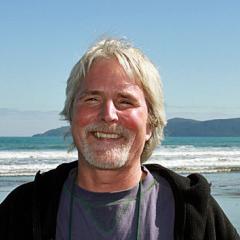New England Retreat Spring 2013: Marine Spatial Planning From Policy to Practice: Competition or Coexistence
Competition for ocean resources continues to expand, with wind and tidal energy, aquaculture, fishing, recreational boating, utility construction, mining and conservation of ecosystem services the subject of increasing controversy in New England and nationally. While there is growing interest in ecosystem-based management and stakeholder participation in the science and policy dimensions of these issues, real on-the ground policies that effectively balance competing interests, sustains resources and protects important ecological values has been difficult to achieve.
The Switzer Foundation sponsored a spring retreat and workshop on Marine Spatial Planning (MSP) in Woods Hole, MA April 5-7, 2013 organized by a star team of Switzer Fellows with professional and research interests in the marine realm. This event was such a popular topic that we expanded our vision for the event and included Switzer Fellows from New England, DC and California and graduate students from area marine science and policy programs. Marine Spatial Planning is a concept that has grown out of the National Ocean Policy and calls for balancing resource protection and a multitude of uses. It is a tool that aims to collect, analyze, and map information and develop policy guidelines for management. The Northeast Regional Ocean Council (NROC) is developing a regional plan for federal waters, but in the meantime, a few states have developed plans of their own for State Waters.
The workshop began with an overview of federal and regional policy directives presented by Betsy Nicholson, NOAA Regional Coastal Program Specialist and John Weber, the Ocean Planning Director for NROC. The two state plans highlighted in the workshop were, The Massachusetts Ocean Plan (MOP) presented by John Weber who led the statewide effort before joining NROC and the Rhode Island Special Area Management Plan (SAMP) presented by Grover Fugate, Executive Director of the RI Coastal Resources Management Council who has been at the forefront of Marine Spatial Planning in the US and internationally. The presenters provided keen insights into the drivers for and the development of these plans, the public processes and stakeholders involved and the varied resources at stake. The presentation of the plans was moderated by Robbin Peach, Executive Director of the Collaborative Institute for Oceans, Climate and Security at UMass Boston, and who was instrumental in raising the funding and the launching the process for the Massachusetts Ocean Plan.
But despite best efforts to produce plans and maps, there are ultimately trade-offs to be made by evaluating ecological and economic values of ocean resources. Understanding our experience in places like Stellwagen Bank National Marine Santuary where mixed uses have been managed for many years is also instructive. Les Kaufman of Boston University described his research on trade-off analysis and 1999 Switzer Fellow David Wiley, Research Coordinator shared lessons learned from their experience, including the precedential effort to move shipping lanes in Boston Harbor away from critical whale habitat in the Sanctuary. Nick Napoli of NROC described some of the other state efforts, namely in Maine and Long Island Sound, and the ways in which science is being generated and used in these efforts. On this panel, which was entitled, MSP: From Theory to Practice, we closed with Sandra Whitehouse, Senior Advisor to the national environmental group Ocean Conservancy, who offered the political realities of getting this work funded in Washington, and the importance of continuing to press for adequate financial support for ocean planning efforts. To date, a significant proportion of state ocean planning efforts have been privately (foundation) funded, notably from the Gordon and Betty Moore Foundation.
The final session of the day provided an opportunity to hear from a few stakeholders about their perspective on Marine Spatial Planning. John Pappalardo Executive Director of the Cape Cod Commercial Hook Fisherman’s Association, of which 1991 Switzer Fellow Eric Hesse is a member, spoke of the importance of MSP, but also argued the importance of recognizing and validating fisherman’s knowledge as well as their fatigue in dealing with so many regulations and stakeholder processes over the years. Priscilla Brooks of Conservation Law Foundation indicated that since active human uses and extractive uses in particular, are part of these planning efforts, it is important for conservation groups to speak to the need for sustainable use and ecosystem-based management which ought to include marine protected areas. We also heard about the Cape Cod District of Special Concern that is a sub-regional effort within Massachusetts under the Cape Cod Commission’s jurisdiction. These case studies were presented by the policy leaders who are doing this work, and Jen McCann of URI Coastal Resources Center and Sea Grant College Program who moderated the session and was very involved in the stakeholder process for the RI ocean plan, reminded participants that stakeholder engagement is absolutely key to buy-in to the resulting plans. This final exploration, of stakeholder involvement was the focus of a workshop on Sunday morning with Dave Wiley which illustrated the ways in which different interest groups trust or mistrust information or data generated by opposing interest groups and the importance of co-generation of science or at least shared definition of the problems to be addressed in scientific inquiry, as a fundamental strategy for getting stakeholder buy-in especially when scientific knowledge is to be the basis of management decisions. We hope to continue to strengthen the network of Switzer Fellows who are engaged in marine and coastal policy through our affinity group and other network activities. Send us your ideas! And special thanks to the planning committee – Syma Ebbin, Andrea Bogolmoni, Melissa Garren, Elena McCarthy and David Wiley.



